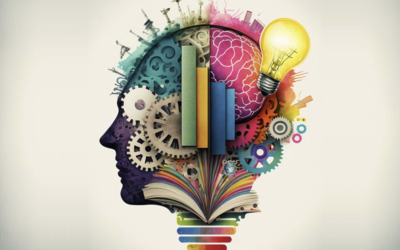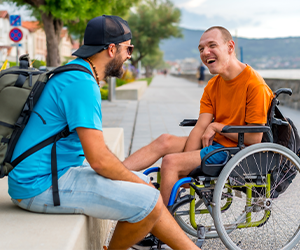Children, Youth and Families
Popular Courses

Brain Injury Screening, Identification, and Treatment Considerations
Screening protocols are essential for helping individuals with brain injuries access the care they need. Brain injuries can significantly impact a person's health, function, and well-being, putting them at higher risk for various physical and mental health challenges. This course focuses on the tools and strategies necessary to assess and evaluate the impact of brain injuries accurately. You'll learn how to gather detailed information about an individual's injury history, conduct comprehensive health history interviews, and recognize when specialist care is needed.
In addition to addressing the direct effects of brain injuries, this course also explores the unique challenges faced by individuals as they adjust to life post-injury. These challenges often include communication difficulties, mood disturbances, and cognitive issues, which can complicate access to care — especially for those with co-occurring behavioral health conditions. By understanding these added complexities, you will be better equipped to support both patients and their caregivers, tailoring treatment plans to meet each individual's specific needs.
View Details

Breaking Down Ableism
As a group, people with disabilities fare far worse than their nondisabled counterparts across a broad range of health indicators and social determinants of health. Adults with disabilities are four times more likely than people with no disabilities to report their health to be fair or poor (40.3% vs. 9.9%). The absence of professional training on disability competency for healthcare practitioners is one of the most significant barriers preventing people with disabilities from receiving appropriate and effective health care.
This introductory course on disability is designed to provide behavioral health professionals with knowledge and skills to better understand and support individuals who have disabilities. This course covers a wide range of topics, including the many identities of people with disabilities, and the social determinants of health, ableism, and the previous models of care that have negatively impacted the well-being of the disabled community. It also highlights what disability-competent care looks like, and the importance of activism, continuous learning, and the disability justice movement.
View Details

Breaking it Down: How to Navigate the BHA Provider Rules and Regulations
View Details

Building a Harm Reduction Philosophy
View Details

Building Enhanced Referral & Care Compact Relationships: Improving Outcomes Through Effective Collaboration
View Details

Building the Bench for Early Childhood Intervention
View Details

Caregiver Engagement: A Key Ingredient for Fostering Healthy Development in Children and Youth
About one in five adolescents have a current, diagnosed mental or behavioral health condition in the United States. According to the National Survey of Children's Health (2024), "Between 2016 and 2023, the prevalence of diagnosed mental or behavioral health conditions among adolescents increased 35 percent (from 12.0% to 20.3%)."
This course is about considerations for caregivers and their role in supporting their children throughout the process of receiving psychosocial care for mental or behavioral health conditions. It highlights emotional parenting actions and their alternative counterpart called effective parenting actions. Finally, it offers an overview of motivational interviewing.
View Details

CCBHCs: Learnings from Changing the Landscape of Behavioral Health Services
View Details

Certified Community Behavioral Health Clinics: Changing the Delivery of Behavioral Health Services
View Details
